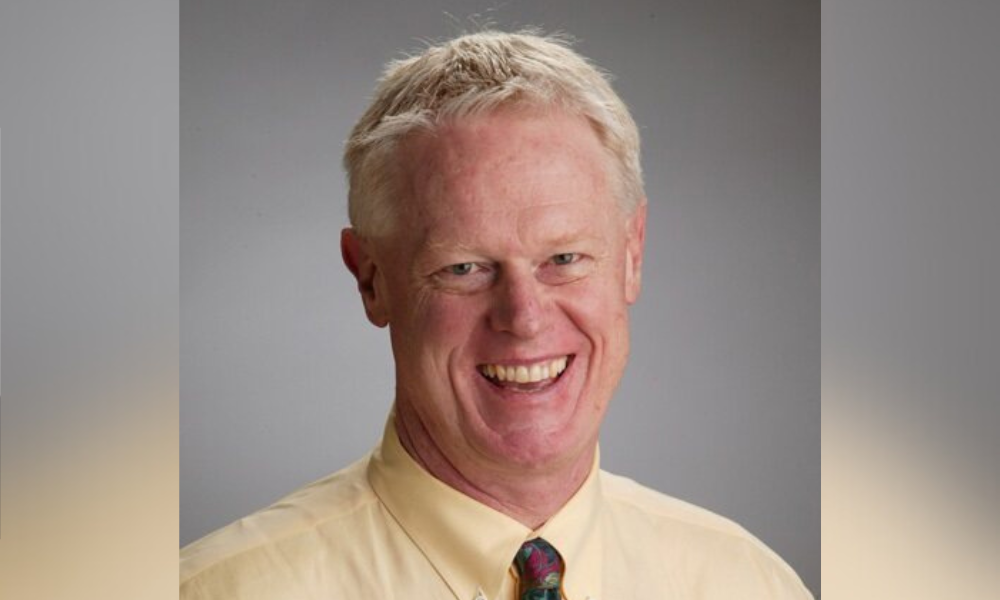Most brokers fail not from market pressure, but from playing it safe, says mortgage veteran

Brokers who wait for the “right” time to grow often miss their window. Real success comes from taking risks early - before the market rewards you for it.
While many firms blame market conditions or affordability concerns, mortgage veteran Rocke Andrews (pictured), of Lending Arizona, says that it’s fear - not timing - that holds most brokers back. With early signs of housing momentum, he argues that growth depends on a firm’s willingness to invest, expand, and lead through uncertainty.
Andrews has spent nearly four decades watching firms stall for all the wrong reasons. His playbook? Build internal strength early- through hiring, compliance, and education - and double down on relationships when others pull back.
“I think the biggest problem to scaling up as a company is just taking advantage and making your moves,” he said. “When the market is picking up, you need to expand… the people that get bigger and expand are the ones that take chances.”
Why fear keeps brokers small
Andrews has seen promising firms stall - not because of market conditions, but because they hesitate. Even with affordability still a challenge, he sees signs of momentum returning. But many brokers, he warned, will miss their moment by waiting too long. For him, growth is a decision - not a reaction to market cues.
That decision comes with risk beyond just the balance sheet. Rapid expansion can expose compliance vulnerabilities, particularly when new hires join without proper oversight.
“Most of the compliance issues that have happened to my companies in the past are when you hire new people,” he said. “You may not have as great an oversight over those people.”
That’s made Andrews especially strict about hiring processes. He stressed the importance of thorough background and reference checks - something he believes too many brokers overlook in the rush to grow.
While some firms outsource compliance, Andrews doesn’t believe in relying on external experts by default. What matters more is building internal knowledge and ensuring it trickles down across the team.
“I think as long as you stay up to date on compliance, you don’t necessarily need an outside compliance person,” he said. “If you’re knowledgeable about it, and you pass that culture and that feeling down to all your employees, they will have the same concern.”
Teaching as strategy
That investment in internal knowledge extends to education, which Andrews treats not as a requirement, but as a strategic advantage. He teaches 10 to 15 broker and loan officer education sessions each year - not just to give back, but to sharpen his own skills.
“The best way to learn something is to teach it,” Andrews said. “I always learn something from the other people in the classes - how they do business, marketing techniques.”
Beyond the learning, those sessions help position him as a local expert. Teaching continuing education (CE) to realtors, for example, isn’t just about credentials. It signals care, credibility, and professionalism.
“It establishes you as an expert in the field - or at least as someone who cares about doing things the right way,” he said. “People respect that and want to do business with somebody like that.”
Relationships overreach
For Andrews, growth isn’t about competing with national lenders on reach or click. It’s about leaning into the broker’s greatest strength: local relationships.
“Your advantage is you know your local market,” he said. “You visit people face to face and establish relationships, and that’s the difference.”
But presence isn’t enough. Andrews urged brokers to bring value to every interaction - whether that’s sending referrals, offering education, or sharing marketing strategies.
“It always comes down to doing something for them, instead of just asking,” he said. “That’s a great way to build up your market and compete with a larger, less personable company.”
Even with digital-native borrowers, relationships still matter. Millennials may do their research online, but when it comes to sealing the deal, they want face time.
“They’ll shop around online, but they always want to meet at least once face to face,” Andrews said. “They want to know that you care and that you actually know what you’re doing.”
That desire for connection underscores one of his core principles: don’t bluff your way through. Authenticity builds trust and it sets professionals apart.
“The biggest advice that I learned very early on is, if you don’t know the answer, tell people that you don’t know,” Andrews said. “But then go do the research and find it.”



